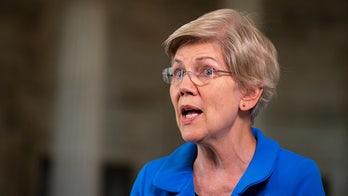With unemployment still hovering at 9.7 percent, job seekers are pulling out all the stops to land work -- but the federal government might just be one of the best gigs out there.
Recent statistics suggest the federal government is becoming an increasingly more attractive place to work than the private sector. Federal jobs outpay their private sector counterparts 83 percent of the time, according to information from the Bureau of Labor Statistics.
And this imbalance has drawn some complaints on Capitol Hill, at a time when lawmakers are talking a lot about reining in federal spending.
"Private sector has a profit motive -- they have to be able to justify these expenditures," Rep. Jason Chaffetz, R-Utah, said. "We are the federal government -- we are, they are just oblivious to the idea that we've got to pay (a) responsible wage."
According to federal data, a cook on the federal payroll will make roughly $15,000 more than one in the private sector. A public relations manager working for the U.S. government will out-earn his or her private sector counterpart by an average of more than $44,000.
But some say simply lining up federal and private jobs side-by-side is like comparing apples and oranges.
"You can't just break down a rather complex process on how pay is set and how jobs match up with each other in the private sector and the federal sector," said John Gage, national president of the American Federation of Government Employees, AFL-CIO.
The disparities don't only show up in salaries, though. According to the Bureau of Economic Analysis, average health, pension and other benefits tally up to $40,785 per federal worker -- compared with just $9,882 per private worker.
"Many private sector workers don't receive pension benefits or health care benefits at all," said Chris Edwards, director of tax policy studies with the Cato Institute.
Officials say that fact shouldn't be held against U.S. government employees.
"I don't think anybody should be upset that federal employees have a pension or that they have health insurance," Gage said. "I'm kind of upset that so many in the private sector don't."
The Office of Personnel Management says one of the key factors to those pricey federal packages is that there is very little turnover in government jobs -- meaning many employees have reached top seniority levels -- and that it's much harder to land one of those federal positions.




